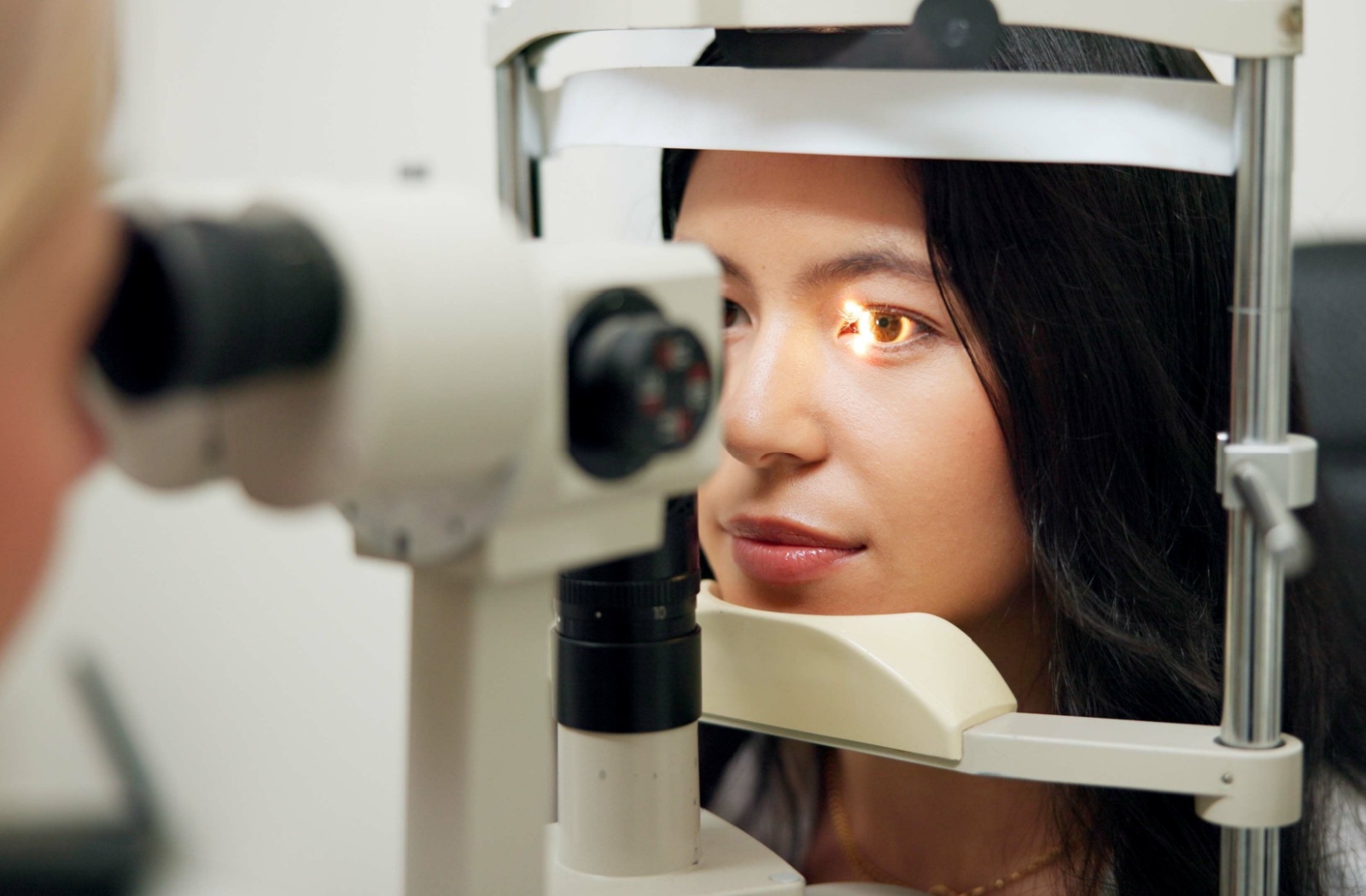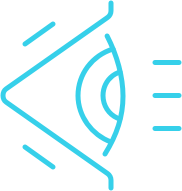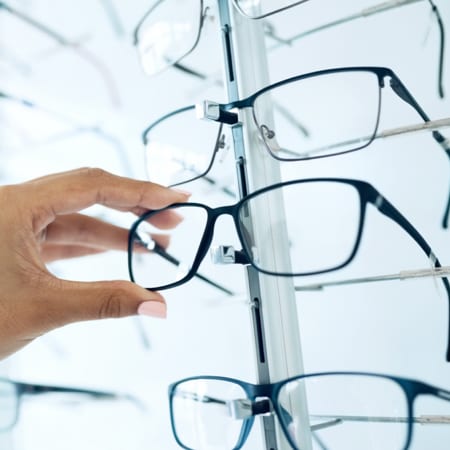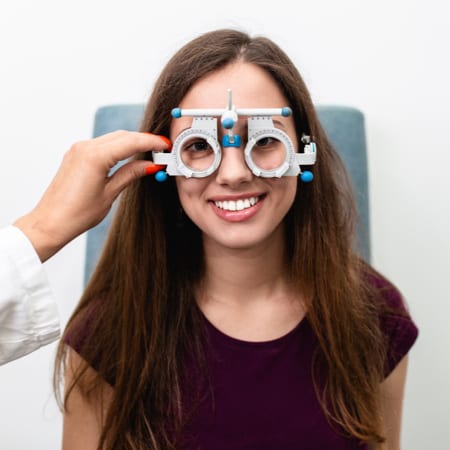When was the last time that you had your eyes checked? Whether or not you wear glasses or contact lenses, regular eye exams are important for maintaining good eye health. However, with busy schedules, it can sometimes feel stressful to have to worry about putting another thing on the calendar. Luckily, eye exams are quick and can be easily added to a busy schedule.
Typically, a comprehensive eye exam takes anywhere from 30-60 minutes, depending on the types of tests involved and whether you will be getting a new prescription.
What Happens During a Typical Eye Exam?
An eye exam is more than just a quick look at an eye chart. It involves a range of tests and evaluations that measure vision, assess overall health, and detect early signs of visual conditions. Here’s a quick breakdown of what typically happens during an eye exam.
A Review of Your Medical & Vision History
Your medical and vision history is important in evaluating and assessing your vision. Your eye doctor may discuss lifestyle habits, any current or past conditions, and other questions related to your vision health. If you are noticing any changes in your eyes, then now might be the time to bring them up.
Visual Acuity Test
You may already be familiar with the visual acuity test. In this test, you’re presented with an eye chart to read letters from a distance. This test measures how sharp your vision is and helps determine whether you may need glasses or an updated prescription.
Refraction Test
This test is where your optometrist will determine the prescription needed for your glasses or contacts. They’ll ask you to evaluate the better between the two lenses at a time, slowly fine-tuning optimal vision correction.
Eye Health Assessment
Additional tests can vary based on your age and eye health history. Common tests include:
- Checking your eye pressure
- Retinal imaging
- Dilated eye exam
It is generally a step where your eye doctor will check for glaucoma, macular degeneration, or other eye issues. The goal is to catch and address any problems early to help preserve your sight.
Specialized Tests
If you have underlying health conditions like diabetes or a history of eye issues, your optometrist may perform additional assessments to screen for eye concerns like diabetic retinopathy. Again, the idea of a comprehensive eye exam is to safeguard your vision by conducting tests that help detect and address issues early.
Factors That May Affect Exam Time
While most eye exams will fall between 30 to 60 minutes, a few factors could impact the length it takes:
- First-time visits: New patients may spend extra time filling in forms or discussing medical history.
- Age: Children and older adults may require more testing to meet specific eye care needs.
- Health conditions: Chronic conditions like diabetes or previous eye injuries may require advanced screenings.
- Additional services: If you are planning to switch contact lenses or update your frames, extra time may be added to your appointment.
How to Prepare for an Eye Exam
If you want to help speed along the process, then there are a few tips you could follow that may help:
- Bring your prescription: If you currently wear glasses or contact, bring them along.
- Know your medical history: Be prepared to share any relevant health issues or medications.
- Take note of symptoms: Whether it’s blurry vision, dry eyes, or frequent headaches, consider keeping a list to share with your eye doctor.
- Plan for dilation (if required): Dilation may temporarily cause blurred vision and light sensitivity, so consider bringing sunglasses and arranging a driver after your appointment.
Children’s Eye Exams
In many cases, a child’s eye exam will be very similar to an adults. However, young, growing eyes may require some additional tests and evaluations to check for any concerns that might be developing. This is essential to help preserve your child’s long term ocular health.
Here are some common tests for children:
- Colour vision: Evaluates a child’s ability to perceive different colours and detect any colour blindness, which may affect daily activities and learning.
- Hand-eye coordination: Assesses how well a child’s visual system works with their hands, which is crucial for activities like writing, playing sports, or using tools.
- Eye teaming: Tests how well the eyes work together to focus and maintain alignment, ensuring clear and single vision.
- Myopia (nearsightedness): A common condition where distant objects appear blurry, early detection is key to managing progression.
While these tests are still conducted on adults, evaluating things like eye teaming and myopia is important in children to slow down progression and prevent future complications.
Schedule Your Next Eye Exam Today
Now that you know what to expect and how long your eye exam might take, it’s time to look after your eye health and schedule yours! At Woodstock Vision Care, our friendly team provides comprehensive eye exams tailored to your specific eye care needs.
Contact us today and schedule an appointment to stay on top of your eye health.
















